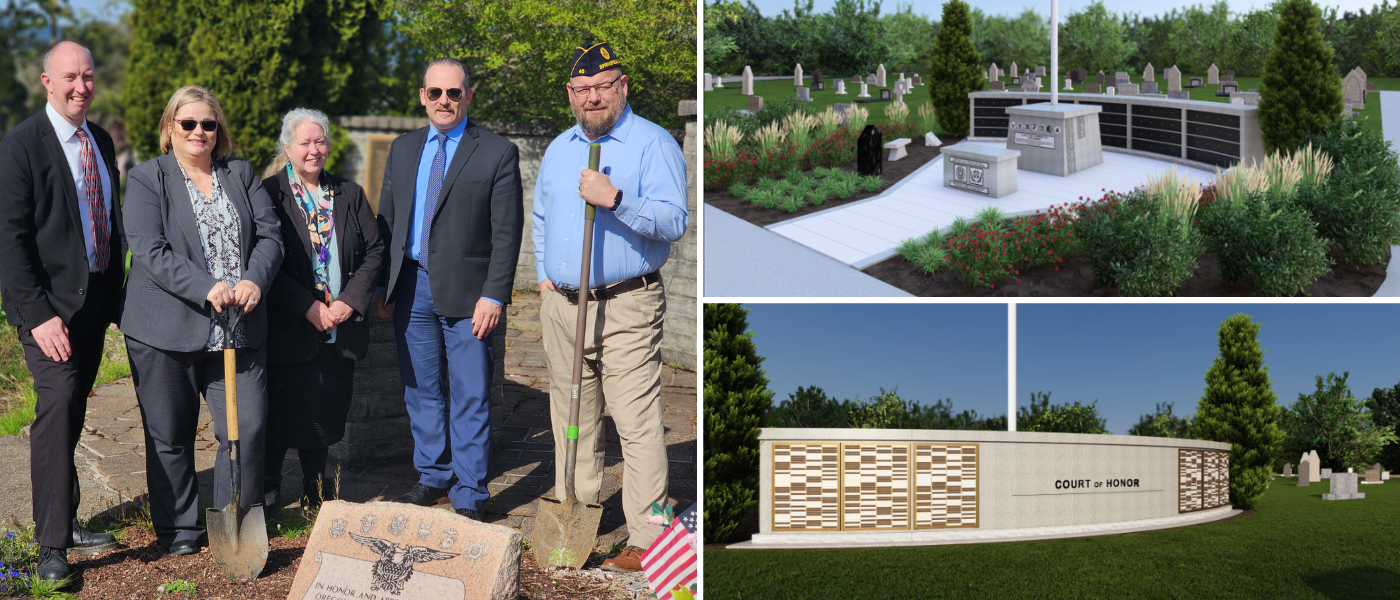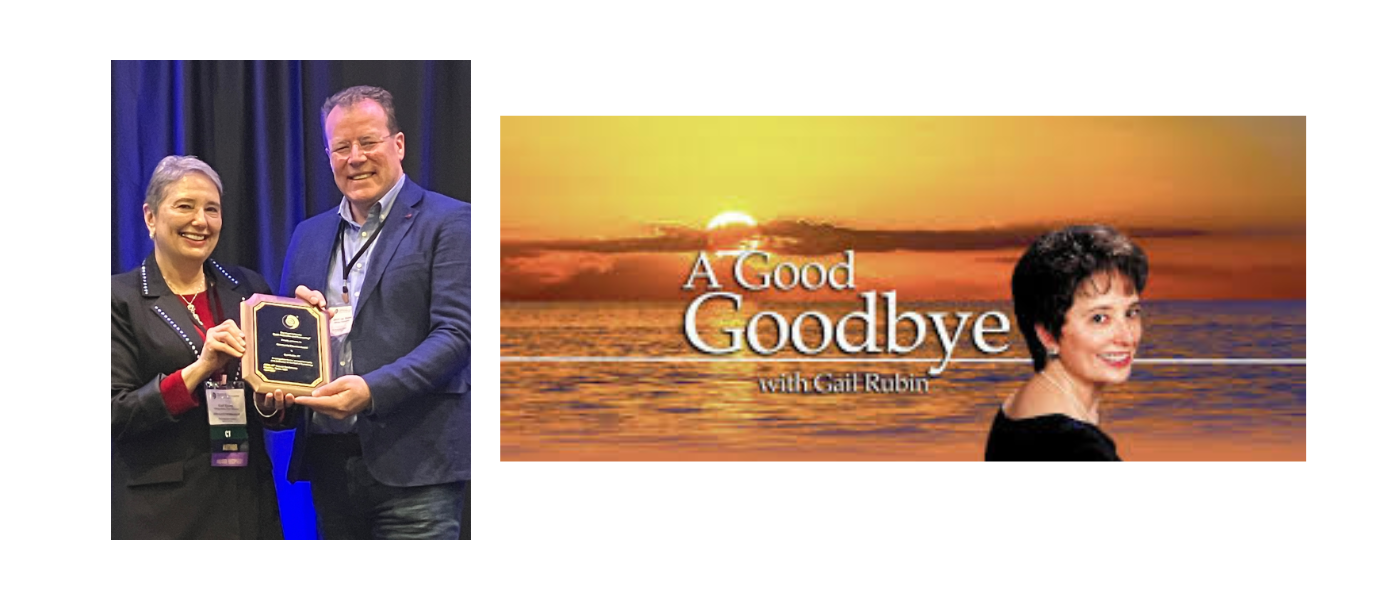Funeral Industry Sees Changes, Funeral Directors Responding to Challenges and Demands
 What has long been one of the most traditional of sectors, the funeral home industry, has experienced a remarkable transformation during the last decade or so. It’s a transformation prompted by changes in technology, societal norms, religious beliefs and demographics, as well as increased competition.
What has long been one of the most traditional of sectors, the funeral home industry, has experienced a remarkable transformation during the last decade or so. It’s a transformation prompted by changes in technology, societal norms, religious beliefs and demographics, as well as increased competition.
With Wal-Mart, Costco, even Amazon (through 24HourCaskets.com) now offering items such as caskets and funeral urns, the industry has had to adapt, placing an increased emphasis on service and personalization.
And a sector once considered sheltered if not immune from economic pressures hasn’t escaped the effects of the recession. Consumers are more cost-conscious, and death rates have been static. In fact, some studies show that death rates tend to decline during recessions; the National Funeral Directors Association says the rate fell to 7.9 per 1,000 population in 2009 compared with 8.1 in 2008.
Although Arkansas, as usual, may be slightly behind some nationwide trends – so-called green burials, for example, have yet to inspire much demand here – the state’s funeral directors are experiencing the same pressures faced by those in the rest of the country. They’re also responding with the same innovations.
Ask Bill Booker, president of Roller Funeral Homes, based in Little Rock, what the biggest transformation has been, and he’s quick with his answer: the Internet.
“It has permeated everything, including how we do business,” said Booker. “You can go to our website, which 10 years ago people couldn’t. The vast majority of the public is so accustomed to the Internet and looking for information instantly, in advance. It’s an amazing tool.”
“Modern technology is going to force a lot a change,” agreed Pete Sims Jr., president of Sims Mortuary of El Dorado, which primarily serves the African-American community. “I’m completely computerized,” the 86-year-old said.
“We post – unless the family does not want us to – we post every obituary online,” Booker said. “That component has an Internet-based guest book where people can leave comments for the public to see and for the family specifically, and it doesn’t matter where they are, as long as they can access that computer. We offer to prepare for everyone a video memorial, which is a sort of a life review of a person through pictures.”
Celebrating Life
The video memorial is a prominent feature at many visitations and services these days and is part of the trend toward personalization of the various ceremonies associated with death. A big element of that is new thinking about how to recognize the passing of a person from mortality: Loved ones and friends are increasingly choosing to celebrate the life of the deceased, not just mourn the death.
“That’s a common theme, that the family might tell whoever is going to be in charge of that service, ‘Make it a celebration. We want it to be about a life that was lived, that was worthwhile and fun. Try not to make it so sad.’ People really do want for it to be an uplifting experience, in general,” said Booker, who leads Roller’s 28 funeral homes, 27 in Arkansas and one in Memphis.
Asked what has led to this change in perspective, Gary Anderson of Conway, manager for Roller’s west region and an ordained minister, said: “I think it’s been a progression over the years. … There was just that mindset that it’s just got to be this sad [event]. When I was growing up there was no personalization, none whatsoever.” People laughing over joyful times in the deceased’s life was “frowned on” and “considered disrespectful.”
“I think the officiants – the ministers, pastors, rabbis, priests – they see a healthier aspect, I believe, to people smiling and even laughing,” Booker said. “You’ll see them telling a humorous story or joke or something like that.”
“We see a lot of people, friends and family, personally eulogize the person. That’s a moving thing,” he said. It’s also increasingly common.
Anderson said: “You never assume now that there’s going to be a minister at the service. That has really changed.”
Bobby Thurman, 38, owner and president of Nelson Funeral Service in Berryville, agreed there’s “definitely a trend towards a celebration of life rather than more of a religious service – when you bring in videos, people coming up and giving eulogies, the music that’s played. A lot of times it’s not religious music now. It’s a song that meant something to the family or to that person who passed away.
“Clothing, even the clothes that [the deceased] wear – a lot of times they’re not wearing suits and ties or real nice dresses. They may wear a favorite pair of pajamas. They may wear a pair of shorts and a tropical-print-type shirt.”
Thurman, the fourth generation of his family to be involved in the business, said, “I think the old religious traditions of a burial service are starting to change. Everything’s looked at a little differently now. And people are celebrating that life that the person lived in a different way. A lot of ministers now are changing the way they do their service to reflect that as well. They incorporate, obviously, the religious side of things and talk about that, but it’s not a church service so much anymore as it used to be. It’s more of a reflection and a celebration of that person’s life and how they lived.”
Event webcasting of funeral and memorial services has found a place in the state. Anderson said Roller’s west region had done five webcasts so far.
The reasons go beyond the availability of the technology into the realm of sociology and demographics. Families are more dispersed, and though people are living longer, often they may not be physically able to travel to the site of the service. In addition, families can receive a copy of the webcast DVD as a remembrance.
New Kinds of Families
One of the biggest factors behind the transformation of the death care sector is the changing nature of families, funeral directors say. Families are larger, often as a result of multiple marriages with stepchildren and half-siblings. Families are more mobile, more dispersed.
“The old days of a family all being within the same county are pretty rare these days,” Booker said.
Work pressures may be the reason more people appear to be attending visitations, which are usually held after office hours, rather than the funerals themselves. “We’re definitely seeing a trend where more people are coming for visitation than services,” Thurman said.
However, Sims said, some differences exist within the African-American community. “Today, 80 percent-plus African-American funerals are held on the weekend,” he said. He cited historical reasons: Slaves might have had only one day off from work or, at the most, a day-and-a-half – Saturday afternoon and Sunday.
“The custom is we love being religious, we like to be able to have a gathering, eat, fellowship with each other,” Sims said. And because, as with families of other racial backgrounds and ethnicities, black families are often scattered, they will use the occasion of a funeral to, in essence, hold a family reunion. “It’s a celebrating occasion.”
But, the funeral directors said, the death of a loved one also can be an occasion for conflict.
Sometimes, there are “disagreements within the family,” Booker said. “It’s a difficult thing. We want to satisfy everyone. But we need the family to be unified as to what type of service they want.”
Conflict in families over such issues as the disposition of remains reached the point that the Arkansas Funeral Directors Association approached the state Legislature for legal clarification. The result was the Arkansas Final Disposition Rights Act of 2009, which spells out exactly who gets to decide what happens to the deceased’s remains. The act even includes a section titled “Where the person entitled to the right of disposition and the decedent were estranged at the time of death.”
Booker said the law had been helpful, particularly in cases of cremation.
Challenges and Misconceptions
More women are entering what has been a male-dominated profession; 57 percent of mortuary science students in the United States are women.
Booker said challenges exist in finding the right employees. “We have to be able to respond to requests 24 hours a day,” he said. “This is not a convenient profession to be in.”
And there are stereotypes and misconceptions, funeral directors agree.
“Some people think that we don’t have a sense of humor,” Booker said, which isn’t true. “Some people may not think of [a funeral home] as a place of warmth. [But] that’s why we refer to it as a home.”
“You have to have a sense of humor,” Thurman said. “This is one business that can really get to you emotionally. You have to have an outlet. … When I’m not at work I’m wearing a pair of boots and jeans and T-shirt. I’m driving around in my Jeep.”
Thurman added: “We’re definitely a more fun group than people think we are.”
Photo: Bill Booker, president of Roller Funeral Homes of Little Rock: The Internet “has permeated everything, including how we do business.”
Source: ArkansasBusiness.com



